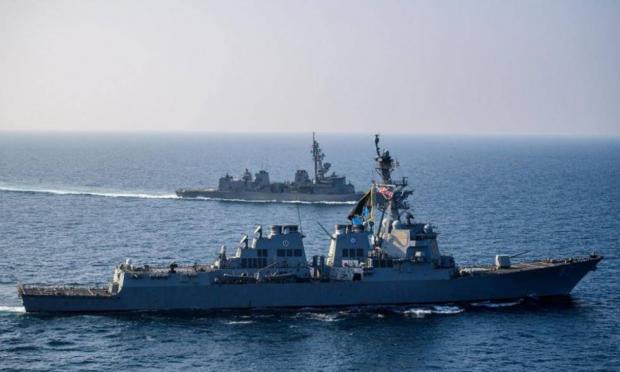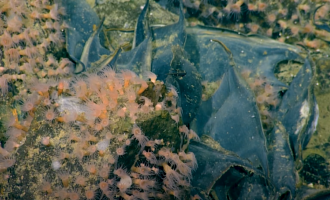Yemen's Houthi rebels show no signs of ending their "reckless" attacks on merchant ships in the Red Sea, the Supreme Commander of US Naval Forces in the Middle East said recently, as more and more nations join the International Maritime Mission to protect merchant ships in the vital waterway and commercial traffic begins to increase.
Houthi rebel attacks on merchant ships in the Gulf of Aden
Since Operation Prosperity Guardian was announced just about two weeks ago, 1,200 merchant ships have sailed in the Red Sea region and none have been hit by drone or missile strikes, Vice Admiral Brad Cooper told The Associated Press in an interview.
The Iranian-backed Houthis say their attacks are targeting Israeli-linked ships in an attempt to stop the Israeli offensive on Gaza.
The Bab el-Mandeb Strait connects the Gulf of Aden to the Red Sea and then the Suez Canal. The critical trade route connects markets in Asia and Europe.
The severity of the attacks, many of which caused damage to ships, led many shipping companies to order their ships to remain in place and not enter the strait until the security situation improves.
Some major shippers were sending their ships around Africa and the Cape of Good Hope, adding time and cost to the voyages.
There are currently several warships from the United States, France and the United Kingdom patrolling the waters of the southern Red Sea and the western Gulf of Aden, said Cooper, head of the 5th Fleet.
Since the start of the operation, the ships have shot down a total of 17 drones and four anti-ship ballistic missiles, he said.
Strong presence of US-Western warships in the Red Sea
Just a few days ago, the USS Mason, a Navy destroyer, shot down a drone and an anti-ship ballistic missile fired by the Houthis, according to US Central Command.
The US said the 22nd attack on international shipping by the Houthis since October 19 caused no damage to any of the 18 ships in the area and no injuries were reported.
"I expect in the coming weeks we will get additional countries," Cooper said.
The U.S. has said more than 20 nations are involved, but some of those nations have not publicly acknowledged it.
Meanwhile, there is a strong allied naval presence in the Mediterranean with Greece participating with the frigate Navarino as part of the U.S. aircraft carrier Gerald R. Ford Carrier Strike Group
U.S. Secretary of Defense Austin discussed the ongoing illegal Houthi attacks in a call with Dutch Defense Minister Kaisha Oelongren, according to the Pentagon. Both condemned the attacks as unacceptable and "deeply destabilizing" to international order and global trade, with Austin stressing that they are "a significant international problem that requires collective action."
Cooper said the coalition is in direct communication with merchant ships to provide guidance on "maneuvers and best practices to avoid attack" and to work closely with the shipping industry to coordinate security.
The side effects of Houthi attacks
Since the operation began, the Houthis have stepped up their use of ballistic missiles against ships, Cooper said. "We are clear that reckless Houthi attacks will likely continue," he said.
The Houthis seized Yemen's capital, Sana'a, in 2014, launching a fierce war against the Saudi-led coalition trying to restore the government. Militants have sporadically targeted ships in the region, but attacks have increased since the start of the Israel-Hamas war.
The Houthis have threatened to attack any vessel they believe is either going to or coming from Israel.
The shipping company Maersk had announced earlier that it had decided to reroute its ships that have been stopped for days out of the Strait and the Red Sea and send them to Africa. Maersk announced on 25 December that it was going to resume sending ships through the strait, citing the operation. Cooper said another shipping company had also resumed using the route.
"Trade is definitely flowing," Cooper said.
However, the tremendously large concentration of naval forces in the Red Sea indicates that a US-West plan is "in the works" for a massive air strike against the Yemeni Houthis, with the aim of crushing them completely, since it is not possible for world naval commerce to be held hostage in their hands.




